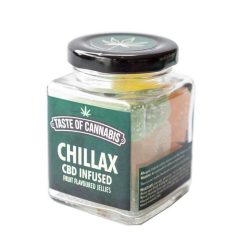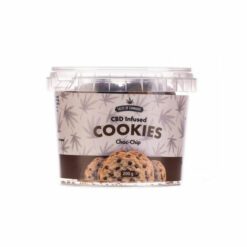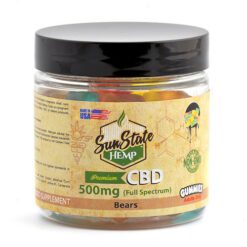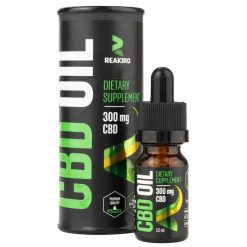As the interest in cannabis-based treatments grows, pet owners are turning to CBD as a potential solution for their furry companions. CBD, or cannabidiol, offers a range of potential benefits for pets, from pain relief to anxiety reduction. However, navigating the world of CBD treatments for pets can be overwhelming.
In this guide, we will explore the fundamentals of CBD, its potential benefits, proper dosage and administration, considerations for choosing CBD products, potential side effects, and conditions CBD can help with. By the end of this guide, you will have a solid understanding of CBD treatments for pets and be equipped to make informed decisions about your furry friends’ well-being.
Understanding CBD For Pets: What You Need To Know
CBD, or cannabidiol, is a compound derived from the cannabis plant that has gained significant attention for its potential therapeutic effects. Before exploring CBD treatments for your pets, it is important to understand some key aspects of CBD.
CBD is non-psychoactive, meaning it does not produce a “high” sensation like THC. This makes it a safer option for pets as it does not alter their mental state. Hemp-derived CBD typically contains lower levels of THC. It is important to ensure that the CBD products you choose for your pets are sourced from reputable manufacturers and undergo proper extraction methods.
CBD interacts with the endocannabinoid system (ECS) in both humans and animals, which plays a crucial role in regulating various bodily functions. CBD is used in pets as it has the following properties:
- Anti-inflammatory
- Analgesic (pain-relieving)
- Anti-anxiety
- Anti-seizure
While anecdotal evidence suggests that CBD can be beneficial for pets, it is important to note that scientific research on CBD’s effects on animals is still limited. However, ongoing studies and anecdotal reports have shown promising results.
Dosage and Administration For Pets
When considering CBD treatments for your pets, one of the crucial aspects to pay attention to is the proper dosage and administration. Determining the right CBD dosage for your pet is essential to ensure their safety and maximise the potential benefits of CBD without causing any adverse effects. Here are some tips for determining the right dosage for your pet:
- Start low and gradually increase: It is recommended to start with a low dosage of CBD and gradually increase it over time. This allows you to observe your pet’s response and find the optimal dosage that works for them. Starting low helps to minimise the risk of any potential side effects and allows for a more accurate assessment of the CBD’s impact on your pet.
- Consider weight and size: The appropriate CBD dosage for pets can vary based on their weight and size. As a general rule, a lower dosage is typically recommended for smaller pets, while larger pets may require higher dosages to achieve the desired effects. Consult with your veterinarian to determine the ideal dosage range based on your pet’s specific weight and size.
- Follow product guidelines: CBD products designed for pets often come with dosage recommendations based on the concentration of CBD in the product. These guidelines can serve as a useful starting point. However, it is important to note that every pet is unique, and individual responses to CBD may vary. Use the recommended dosage as a reference, but be prepared to adjust it based on your pet’s specific needs and response.
- Observe your pet’s response: Pay close attention to your pet’s behaviour and overall well-being after administering CBD. Monitor any changes in their behaviour, such as improvements in mobility, reduction in pain, or alleviation of anxiety. If you notice any adverse effects or lack of desired improvements, consult with your veterinarian to adjust the dosage accordingly.
- Consistency and regularity: Consistency is key when administering CBD to pets. Establish a regular schedule for giving CBD to your pet, as this can help maintain a consistent level of CBD in their system. Regular administration allows for a more accurate evaluation of the effects and provides the best opportunity for CBD to support their overall well-being.
By following these dosage and administration guidelines, pet owners can safely introduce CBD to their furry friends’ wellness routine. Safely administering CBD to your pets can help promote their overall well-being and potentially provide relief from various conditions they may be experiencing.
Choosing The Right CBD Products For Your Pet: Factors To Consider
Selecting the right CBD products for your pet is crucial to ensure their safety, effectiveness, and overall well-being. With the growing popularity of CBD treatments for pets, it is important to consider several factors when choosing CBD products.
- Administration methods: CBD for pets comes in various forms, including oils, treats, capsules, and topicals. The choice of administration method depends on your pet’s preferences and needs. CBD oils are versatile and can be mixed with food or administered directly into your pet’s mouth. Treats and capsules offer convenience and ease of administration. Topicals can be applied directly to the skin for localised effects.
- Quality and source: Opt for high-quality CBD products that are sourced from reputable manufacturers. Look for products that undergo third-party testing to ensure their potency, purity, and safety. Verify that the CBD products are derived from organically grown hemp plants and free from harmful chemicals, pesticides, and solvents.
- CBD concentration: Different pets may require different CBD strengths based on their size, weight, and specific conditions. It is important to find a product with an appropriate CBD concentration that aligns with your pet’s needs. Consult with your veterinarian to determine the optimal CBD strength for your pet.
- Extraction method: Pay attention to the extraction method used to obtain CBD from the hemp plant. CO2 extraction is considered a safe and efficient method that preserves the beneficial compounds of CBD while eliminating harmful substances. Avoid products that use solvents in the extraction process, as they may leave residues that could be harmful to your pet.
- Full-Spectrum vs. Broad-Spectrum vs. CBD Isolate: Consider the type of CBD extract used in the product. Full-spectrum CBD contains all the naturally occurring compounds found in the hemp plant, including other cannabinoids and terpenes that work together. Broad-spectrum CBD undergoes additional processing to remove THC while retaining other beneficial compounds. CBD isolate is the purest form of CBD, containing no other cannabinoids or terpenes. Each type has its own benefits, so it is important to choose the one that aligns with your pet’s needs.
- Consult with a veterinarian: Seek advice from a veterinarian who has experience with CBD treatments for pets. They can provide personalised recommendations based on your pet’s specific needs and medical history. A veterinarian can guide you in selecting the most suitable CBD products and offer insights into potential interactions with any medications your pet may be taking.
Potential Side Effects And Risks: What To Watch Out For
While CBD treatments for pets are generally considered safe, it is important to be aware of potential side effects and risks that may occur. Monitoring your pet’s response to CBD and being knowledgeable about possible adverse effects will help ensure their well-being.
- Drowsiness: One of the common side effects of CBD is drowsiness or sedation. Some pets may experience mild lethargy or sleepiness after taking CBD. While this can be beneficial for pets with anxiety or sleep issues, it is important to monitor their activity level and adjust the dosage if excessive sedation occurs.
- Dry mouth: CBD can reduce saliva production, leading to dry mouth in pets. While this side effect is generally mild, it is important to ensure that your pet stays hydrated by providing them with ample access to fresh water.
- Gastrointestinal disturbances: In some cases, CBD may cause gastrointestinal issues such as diarrhoea or changes in appetite. If your pet experiences digestive discomfort after taking CBD, it may be necessary to adjust the dosage or try a different administration method.
- Drug interactions: CBD has the potential to interact with certain medications. It is crucial to consult with a veterinarian if your pet is currently on any medications to avoid potential interactions. A veterinarian can provide guidance on the safe use of CBD in conjunction with other medications.
- Individual sensitivity: Just like humans, pets can have individual sensitivities or allergies to certain substances, including CBD. Monitor your pet closely after administering CBD and discontinue use if you observe any concerning reactions or allergies.
It’s important to note that the occurrence of side effects is relatively rare and usually mild. However, every pet is different, and their response to CBD may vary. Monitoring your pet closely and starting with a low dosage can help identify any potential adverse effects early on.
Frequently Asked Questions About CBD Treatments For Pets
As CBD treatments for pets gain popularity, it is natural for pet owners to have questions and seek clarity about this topic. This section sums up some frequently asked questions to provide a better understanding of CBD treatments for pets.
Is CBD Safe For Pets?
CBD is generally considered safe for pets when administered correctly. However, it is important to use high-quality CBD products specifically designed for pets and follow recommended dosage guidelines. Consult with a veterinarian experienced in CBD treatments to ensure safety and proper usage.
Will CBD Make My Pet High?
CBD is non-psychoactive, meaning it does not produce the “high” typically associated with cannabis. CBD products for pets legally contain less than 0.3% THC. Therefore, CBD treatments should not cause intoxication in pets when used as directed.
What Conditions Can CBD Treat In Pets?
CBD treatments have shown potential for managing various conditions in pets, including chronic pain, arthritis, anxiety, seizures, inflammation, and skin conditions.
Can I Give My Pet Human CBD Products?
It is not recommended to give your pet human CBD products. CBD products specifically formulated for pets have different ingredients and concentrations that are tailored to their needs. Human CBD products may contain additional ingredients that could be harmful to pets.
-
TOC Gummies (15 pcs/bottle)
R150.00 -
TOC CBD Cookies 150mg 200g
R180.00 -
Sunstate Hemp – CBD Gummy Bears
R450.00 -
Reakiro – Broad Spectrum CBD Oil
R349.00 – R499.00
Can My Pet Overdose On CBD?
Although your pet cannot overdose on CBD, excessive amounts of CBD may lead to increased drowsiness or other side effects. Following dosage guidelines and consulting with a veterinarian will help avoid any potential issues.
How Long Does It Take For CBD To Take Effect In Pets?
The onset of CBD’s effects can vary depending on factors such as the administration method, pet’s metabolism, and individual response. Some pets may experience immediate effects, while for others, it may take a few hours to observe noticeable changes. Consistency in administering CBD and monitoring your pet’s response is key.
CBD treatments for pets have shown promise in managing various conditions such as pain, anxiety, inflammation, and seizures. However, it is crucial to prioritise safety and consult with a veterinarian experienced in CBD treatments before starting any CBD regimen. They can provide personalised recommendations based on your pet’s specific needs, medical history, and any potential interactions with medications.
Always stay informed, follow recommended guidelines, and prioritise your pet’s safety and comfort throughout their CBD journey. With responsible use and proper guidance, CBD treatments for pets can be a valuable addition to their overall health and wellness regimen.
The post Cannabis For Pets: A Guide To CBD Treatments For Your Furry Friends appeared first on Vaperite.









